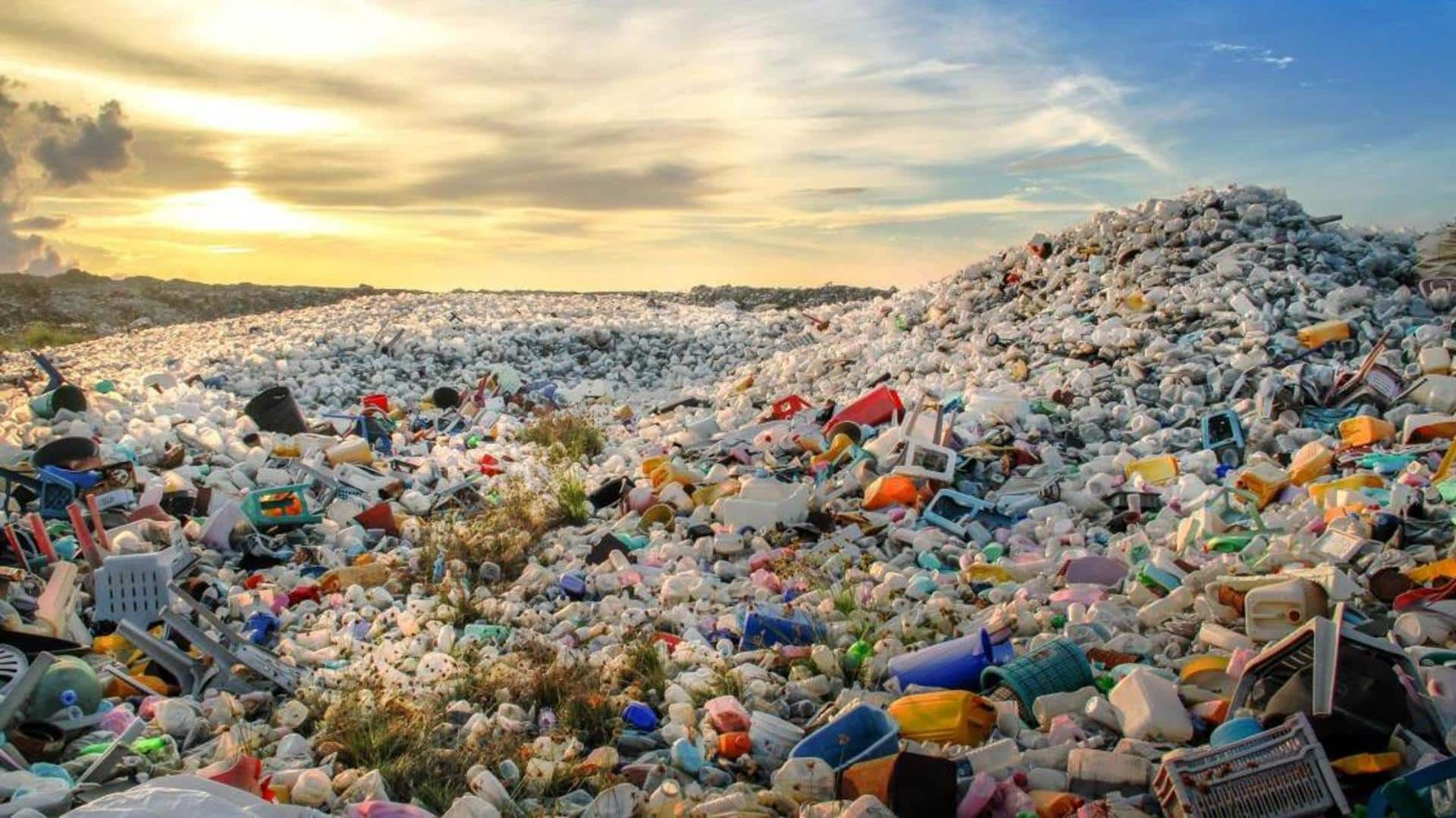
Microbes sampled from Alps can digest plastics at low temperatures
What's the story
Researchers from the Swiss Federal Institute WSL have found microbes, in the Alps and the Arctic regions, that can break down plastics at low temperatures. It's important to note that there are several existing microbes that can digest plastics but they usually work at temperatures above 30-degree Celsius. In comparison, the recently discovered microbes can digest plastics at 15-degree Celsius.
Context
Why does this story matter?
The microbes sourced from the Alps and the Arctic would have significant implications when it comes to recycling and could also prove to be a potential breakthrough. That is because the industrial processes involving microbes, which function at above 30-degree Celsius to digest plastics, require heating and are also not carbon-neutral. Moreover, such processes are highly expensive.
Process
Researchers sampled 19 strains of bacteria and 15 of fungi
The researchers took samples of 19 strains of bacteria and 15 of fungi that were growing on free-lying plastic or from plastics that were intentionally buried in the ground for one year, in Greenland, Switzerland, and Svalbard. The team allowed the isolated microbes to grow as single-strain cultures in the laboratory, under dark conditions, and at 15-degree Celsius.
Information
The team identified the genera of the microbes
Next, scientists used molecular techniques to identify the microbes. They found that the bacterial strains belonged to 13 genera in the phyla Actinobacteria and Proteobacteria, and the fungi belonged to 10 genera in the phyla Ascomycota and Mucoromycota.
Test
The testing included plastics like polyethylene (PE) and polyester-polyurethane (PUR)
The team tested the ability of each microbial strain to digest sterile samples of non-biodegradable polyethylene (PE) and biodegradable polyester-polyurethane (PUR). Two commercially available biodegradable mixtures of polybutylene adipate terephthalate (PBAT) and polylactic acid (PLA) were also used in the study. None of the microbial strains could break down PE, even after being incubated on the plastics for 126 days.
Results
Certain microbes could break down PUR at 15°C
Notably, 19 microbial strains, that's about 56%, including 11 fungi and eight bacteria, could break down PUR at 15-degree Celsius. Also, 14 fungal strains and three bacterial strains could digest the plastic mixtures of PBAT and PLA. A series of tests, including Nuclear Magnetic Resonance (NMR) and fluorescence-based assay, confirmed the microbial strains could cleave the PBAT and PLA polymers into smaller molecules.
Information
Large fraction of microbes could degrade at least one plastic
"It was very surprising to us that we found that a large fraction of the tested strains was able to degrade at least one of the tested plastics," said Joel Ruthi, who is currently a guest scientist at WSL.
Official words
How are microbes able to digest plastics?
Microbes can digest plastics since they resemble certain plant polymers. "Microbes have been shown to produce a wide variety of polymer-degrading enzymes involved in the break-down of plant cell walls," said Beat Frey, senior scientist at WSL. "..Plant-pathogenic fungi are often reported to biodegrade polyesters, because they can produce cutinases which target plastic polymers due their resemblance to the plant polymer cutin," he added.
Information
These were the best-performing microbial strains in the study
Out of all the microbial strains which were tested, the best performers were two uncharacterized fungal species, belonging to genera Neodevriesia and Lachnellula, which could digest all of the tested plastics except PE.
Limitations
Most tested strains grew well between 4- and 20-degree Celsius
For the study, the team tested the microbial strains at only one temperature, 15-degree Celsius. Hence, researchers do not know yet the ideal temperature at which the microbes will be able to digest plastics. Most of the tested strains can grow well between 4-degree Celsius and 20-degree Celsius, with the optimal temperature around 15-degree Celsius, said Frey.
Information
The next challenge is to identify plastic-degrading enzymes
"The next big challenge will be to identify the plastic-degrading enzymes produced by the microbial strains and to optimize the process to obtain large amounts of proteins," Frey claimed, adding, "further modification of the enzymes might be needed to optimize properties such as protein stability."